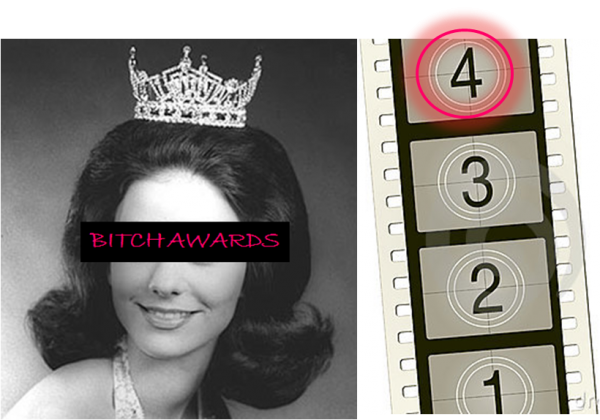
The 2014 Bitch Awards for film continue as we name our picks for #4 best and worst.
Read on for the entries…
WORST
TVAngie
#5: The Amazing Spider-Man 2 (Webb, 2014)
#4: Dracula Untold (Shore, 2014)
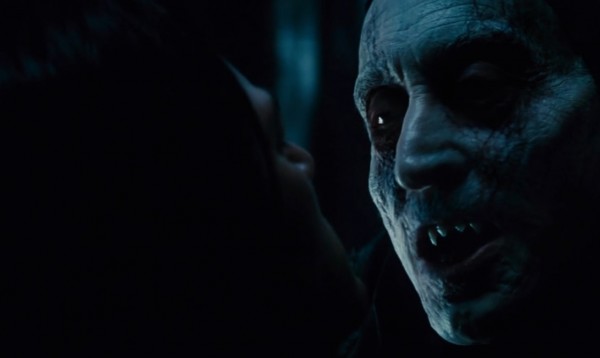
Courtesy of Universal Pictures
Another intriguing premise that completely falls short when it comes to execution. For some reason, our fascination with vampires just won’t go away. A Dracula origin story seemed inevitable since we’ve reached the saturation point of angst-y vampires that sparkle. The story is certainly juicy – Vlad (Luke Evans) the Impaler, trained as soldier when he was just a boy, sells his soul to the dark side in order to win the ultimate war save his own son from the same unfortunate childhood. Much of Vlad’s history is glossed over (understandably for the sake of time) but to believe that he’s essentially this good guy who puts his family and country before all else is just preposterous. Conditioned from childhood to kill or be killed, and relishing in the gruesome killing of hundreds of men is bound to leave someone with serious issues, which Vlad shows no indication of. He’s a completely functional human being and that really bothers me. Perhaps it’s petty of me to focus on that – I mean, one look at the trailer indicates that we’re not going to get the deepest of character development.
Glossed-over histories aside, the film is just boring. There’s one moment of potential – when Vlad petitions the Master Vampire to give him the strength of an immortal but not at the expense of his soul. As I said, it’s intriguing – knowing that there was a vampire pre-Dracula and getting a glimpse into how the whole vampire thing started – but alas, there’s no payoff. There’s also no investment in Vlad, so we don’t care about him or his quest to avoid being the devil’s pawn for all eternity. This pathetic attempt to make Dracula a sympathetic bloodsucker fails miserably and isn’t worth your time.
cinephilactic
#5: All Cheerleaders Die (McKee & Sivertson, 2013)
#4: Noah (Aronofsky, 2014)
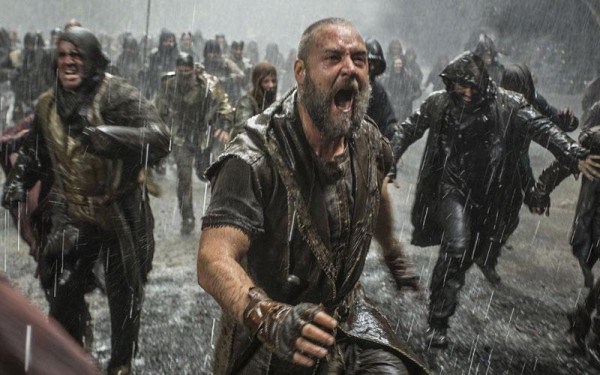
Courtesy of Paramount
2014 was a good year – commercially – for religious-themed films. In fact, this film, from acclaimed director Darren Aronofsky (Requiem for a Dream, The Wrestler, Black Swan), did big business by tapping both the religious and secular interest in a big budget, blockbuster take on Noah’s arc.
What Aronofsky delivers is decidedly different than what the Bible tale and the trailers suggest, however. In addition to the expected flooding, pairs of animals and giant wooden ship, there are stone monsters and Russell Crowe reenacting the final act of Sunshine on a pregnant Emma Watson. Ultimately Noah feels like a bunch of different movies all crammed together: one is a domestic drama about a family surviving in barren land, one is a war drama between a religious man and a local tyrant, one is a dystopian past/future lorded over by rock gods, and one – arguably the least successful – is a horror movie about a faith-obsessed killer preying on his pregnant step-daughter. Muddled is the word that comes to mind.
Ponderous, as well. The switch between seemingly different films makes the film feel about six hours long, of which very few are truly enjoyable. While the special effects (particularly the flooding sequence) are well-executed, it’s hard not to feel like this is a misguided passion project that someone needed to reign in and edit down (both at the scripting and editing stage). This one is a long, expensive misfire.
BEST
TVAngie
#5: Enemy (Villeneuve, 2013)
#4: Gone Girl (Fincher, 2014)
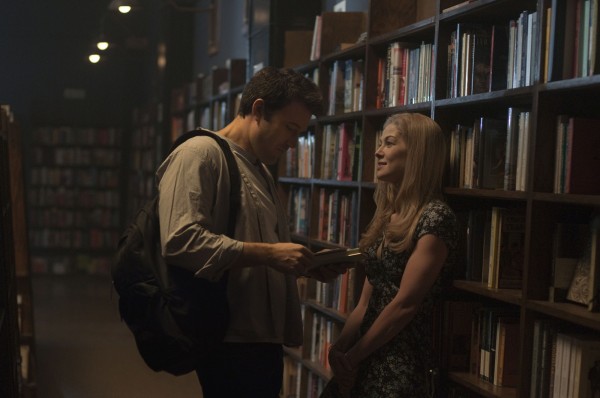
Courtesy of 20th Century Fox
A bunch of biases came with me when I viewed Gone Girl – I’d read the book and loved it and I’m a big fan of David Fincher. But I’ve been disappointed before and I’m happy to say that Gone Girl rightfully deserves a spot on the best list this year. At first glance the film’s plot may seem pedestrian -a beautiful wife, Amy (Rosamund Pike) disappears mysteriously and her husband, Nick (Ben Affleck) is the prime suspect. But the narrative is so much more than that – it’s essentially about the roles we inhabit (conscious or not) in order to get what we want. You need only think of about how you act on first date or a job interview to relate, and Gone Girl takes it that much further. You may think you know your spouse, but what is he/she really thinking? A couple may look perfect on the outside (we all have one of those in our lives amiright?), but what happens behind closed doors? These are universal themes and although the plot delves into the extreme and becomes a little unbelievable in its third act, the film remains a fascinating character study and an intriguing mystery.
I had some reservations about Affleck taking on the complex role of Nick, but I’ll gladly eat my humble pie because he’s actually kinda perfect for the part: arrogant, selfish, but wrapped up in a good-guy-can’t-help-but-love-him package.
The film version is definitely true to its source material, but like any good adaptation, it adds some delicious nuanced layers that you just don’t get from the book. The look of the film for example, is spot on – there’s a discernable veil of darkness and haze that seems to cloak every scene, mirroring the theme of duplicity inherent in the narrative. The soundtrack is also incredibly eerie and dissonant, but not in an overt or obvious way. Most of the time you aren’t even paying attention to the soundtrack, but when you take a conscious listen – there’s a wonderful symmetry happening with the visuals and narrative themes. Definitely one worth checking out.
cinephilactic
#5: Blue Ruin (Saulnier, 2013)
#4: Obvious Child (Robespierre, 2014)
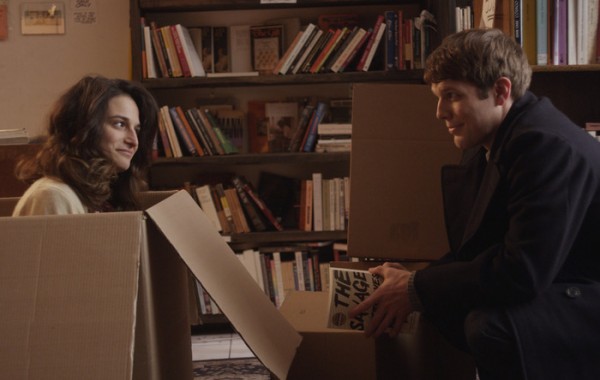
Courtesy of Rooks Nest Entertainment
I will confess that I initially had no interest in seeing this film. Then a few friends with good taste told me to check it out and I discovered that I had nearly missed one of the most charming, funny movies of the year. Had I missed it, it would have served me right for being so judgmental.
The film could conceivably be called a rom-com based on its premise: Donna (Jenny Slate) is a young comic who, upon being dumped by her boyfriend, has an ill-advised one night stand and gets pregnant. The premise hardly makes Obvious Child sound like an uproarious comedy, but the film is the perfect marriage of actor and material. Slate shines as Donna, a gifted comic who is unapologetically candid on-stage and a bit of a trainwreck in her person life (bad relationships, poverty, a mildly contentious relationship with her mother, etc). Despite her flaws and her occasionally less-than-adult approach to life, Donna is a character that is easy to root for and she and her strait-laced suitor, Ryan (Paul Briganti) make a cute pair.
It’s a credit to the film that it is first and foremost a comedy with believable and enjoyable characters. The pregnancy is the obvious narrative impetus for a number of the plot developments, but Obvious Child doesn’t play into the politics around pro life/choice. Donna makes a decision that is appropriate for her and while the decision won’t resonate with everyone, the film handles everything intelligently without getting preachy or devolving into a fairytale.
Considering how much I dislike romantic comedies, the fact that Robespierre and Slate have created something so effortlessly amusing and entertaining within the genre’s trappings must be recognized. Obvious Child is a small indie comedy that stands out due to its wit, charm and likable characters. It’s one to check out.
So readers, what do you think of our #4 picks: agree/disagree? Hit up the comments and let us know and be sure to visit us tomorrow as we continue the countdown!